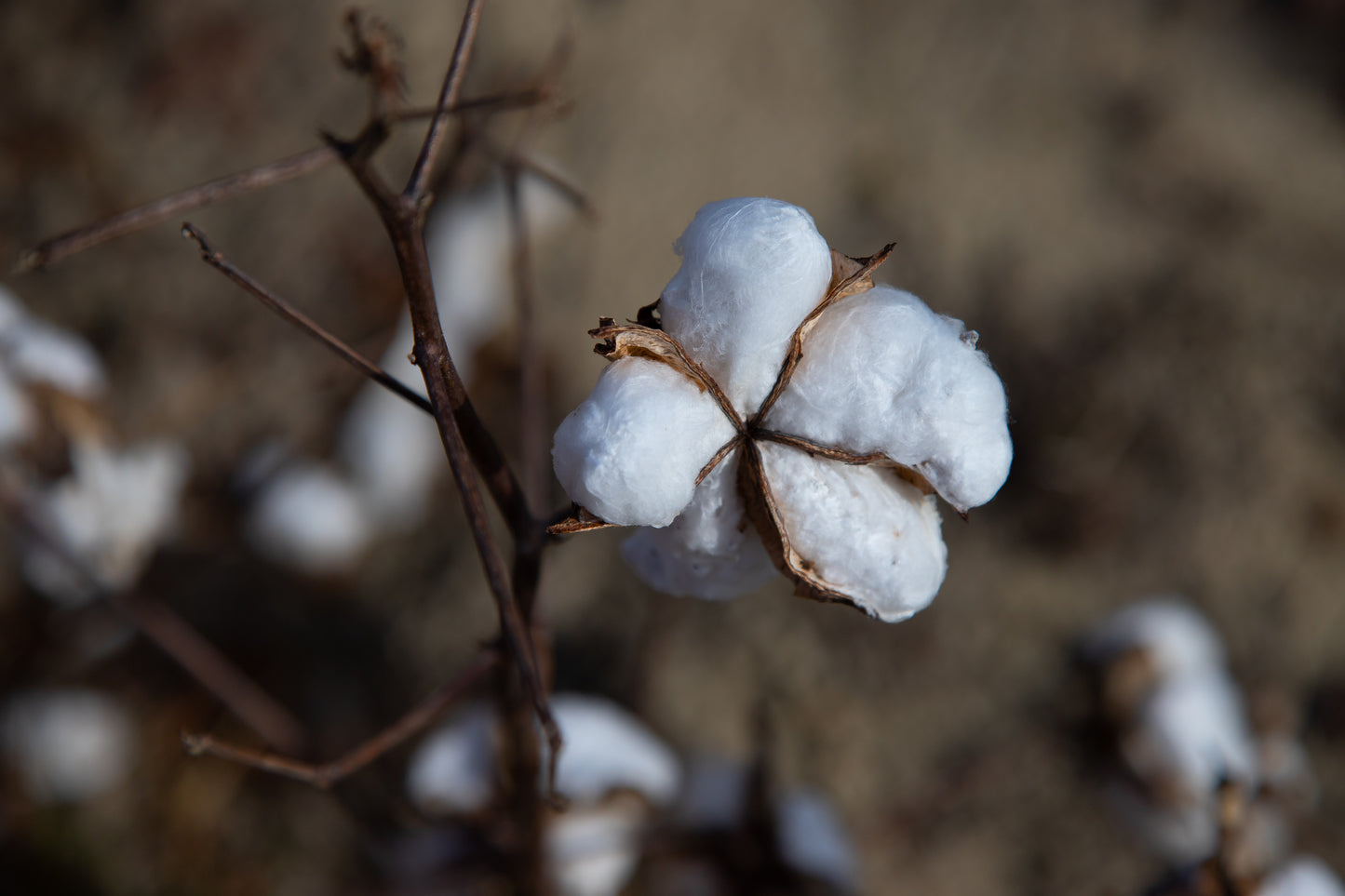
Introduction
I still remember the day in February 2001. We had a small 10x10’ booth at the NY Toy Fair and were introducing organic cotton dolls, by Keptin-Jr that we had newly discovered in Germany just weeks earlier.
We proudly displayed those dolls with the sign “Organic Cotton Dolls.” Buyers walked by the booth with a puzzled looks on their faces. More than a few buyers stopped and asked, quizzically, “What is an organic cotton doll?”

It seems so obvious today, but you have to remember the organic movement was still new. People had begun seeing things like “organic broccoli” or “organic lettuce” in the mainstream grocery stores - but that is something you eat. Why on earth would you need an organic doll?
Of course, since then, more organic dolls have come on the market, not to mention organic cotton clothing. But back to the original question - why? Why all the fuss? Isn’t conventional cotton still natural? Why should I pay extra for the organic label?
In this post, we will explore the differences between conventional and organic cotton, and why choosing organic can make a big difference for our children's health and our planet's future. Let's unravel the 'organic' mystery together.
What is Organic Cotton?
Organic cotton is grown using methods that prioritize environmental sustainability and promote biodiversity. How is this done?
Unlike conventional cotton, organic cotton farming also prohibits the use of synthetic pesticides, genetically modified organisms (GMOs), and chemical fertilizers. But what is used in their place? Organic farmers use natural methods to control pests and weeds, such as crop rotation, cover cropping, and companion planting.
(Companion planting is when a farmer plants different crops together to attract beneficial insects, suppress weeds, and improve soil quality. For instance, Cilantro suppresses weeds, while marigolds attract beneficial insects such as ladybugs and lacewings, which help to control pests).
Organic cotton is certified by a third-party organization to ensure that it meets certain standards. These standards typically include requirements for soil health, water conservation, and worker safety. GOTS is one of the more well-known certifications; most of our organic cotton dolls are GOTS certified.
All of these procedures ensure that the cotton is grown in a way that is safe for the environment as well as for the people involved in its production.
The Downside of Conventional Cotton
Conventional cotton is grown with the use of synthetic pesticides, fertilizers, and herbicides. These chemicals can pollute the environment and negatively affect the health of farm workers.
It is important to keep in mind that according to the Environmental Working Group, cotton represents 16% of all pesticides used in the USA. The reason for this is that cotton is a water-intensive crop, highly susceptible to pests and disease.
This concentration of pesticides is one reason why cottonseed oil is considered to be one of the least healthy types of oils in processed foods.
Here are some other negative impacts of conventional cotton production:
- Pesticides: Pesticides can contaminate soil, water, and air. They can also harm wildlife and pollinators (ie. the bees we so depend on for food production).
- Fertilizers: Fertilizers can pollute waterways and contribute to the problem of nutrient runoff.
- Herbicides: Herbicides can kill beneficial plants, such as wildflowers and beneficial insects.
The Benefits of Organic Farming
While it is clearly good to avoid the above-mentioned negative aspects of conventional cotton cultivation, what are the actual benefits to health and the environment by choosing organic cotton over conventional cotton?
Organic farming is more sustainable as it has a much lower environmental footprint than conventional cotton as it can be beneficial for the soil, environment, and human health in general.
- Soil health: Organic farming helps to improve soil health by building up organic matter and reducing erosion. This is important because healthy soil is essential for plant growth and can help to mitigate climate change.
- Water conservation: Organic farming requires less water than conventional agriculture. This is because organic farming methods help to conserve water by reducing evaporation and runoff. It also uses conservation techniques such as drop irrigation and rainwater harvesting. This is in contrast to conventional cotton farming consumes vast amounts of water, putting a strain on local water resources.
- Reduced greenhouse gas emissions: Organic cotton production has a lower carbon footprint compared to conventional cotton. Organic farming reduces greenhouse gas emissions by reducing the use of fossil fuels. Additionally, organic cotton production promotes healthy soil, which acts as a carbon sink, sequestering carbon dioxide from the atmosphere.
- Improved human health: Organic farming can improve human health by reducing exposure to harmful pesticides and herbicides, whether by the farm workers, those producing the end product, or the end-users themselves..
The Benefits of Organic Cotton to Consumers
Organic cotton is a good choice for consumers who are concerned about the environment and their health.
- Health benefits: Organic cotton is free of harmful pesticides and fertilizers, which can be harmful to human health. Organic cotton is hypoallergenic and free from harmful chemicals, making it a safe choice for children with sensitive skin or allergies. By opting for organic cotton dolls, you can reduce the risk of exposure to toxins commonly found in conventional cotton products.
- Eco-friendly/Sustainable toys: Organic cotton toys are a great way to introduce children to the importance of sustainability. As organic cotton is typically produced by smaller growers, it is a way to support family farms. Likewise, organic cotton is often used by small-batch producers that make niche products that are often fair trade and/or support mothers and families directly.
Conclusion: Why You Should Choose Organic Cotton
There are many reasons to choose organic cotton over conventional cotton. Organic cotton is better for the environment, better for human health, and a more sustainable choice.
Typically, those wishing to avoid mass-produced toys that lack creativity and care in their production will gravitate towards responsibly produced toys that are small batch sewn with the highest quality materials, such as organic cotton.
We invite you to explore the range of organic cotton products we have from some of the best soft toy creators in Europe, including Keptin-Jr dolls (which I referred to at the beginning of this article), Nanchen dolls, Efie stuffed animals, and Senger stuffed animals.



